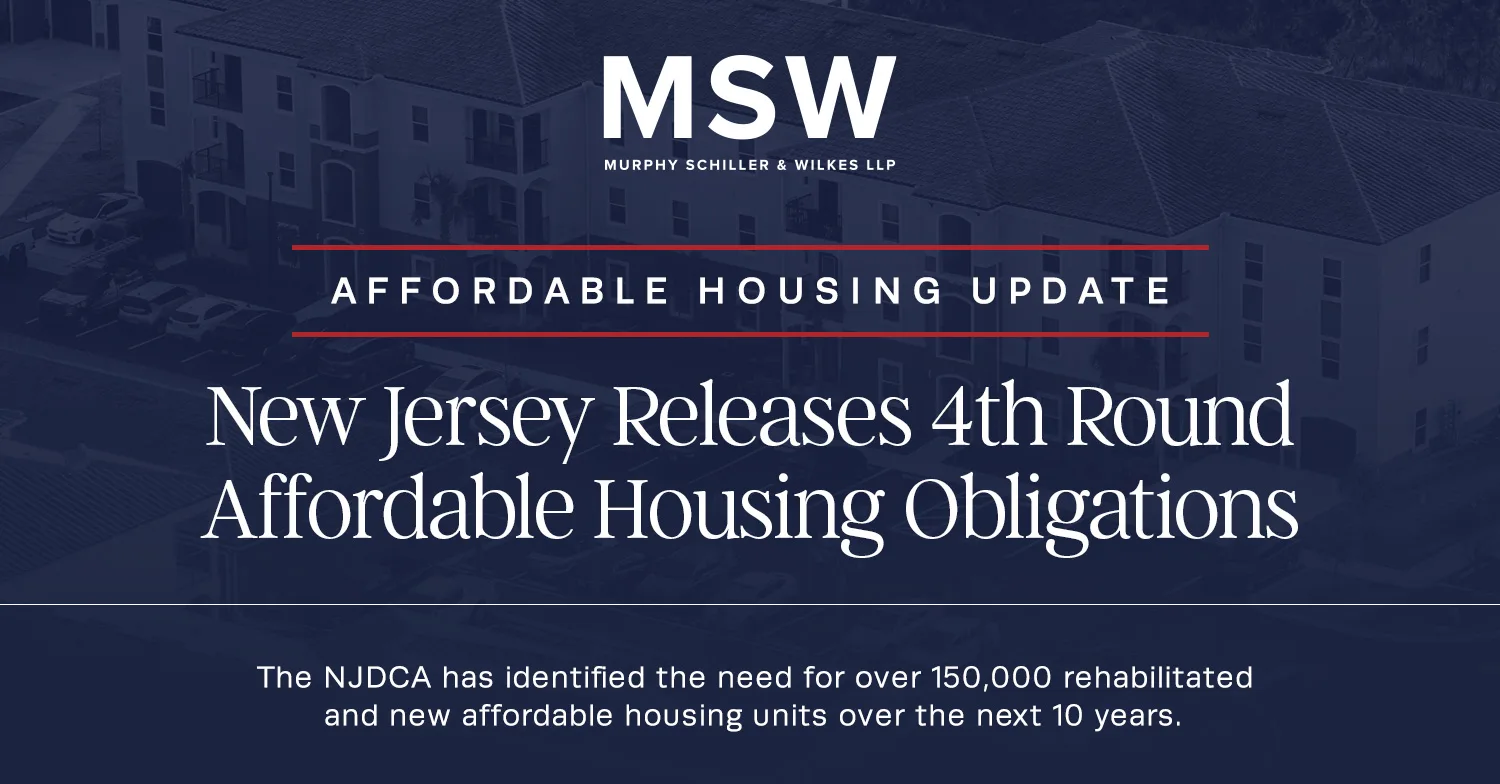
New Jersey Releases 4th Round Affordable Housing Obligations
The NJDCA has identified the need for over 150,000 rehabilitated and new affordable housing units over the next 10 years.
Following the passage of legislation earlier this year, which abolished the Council on Affordable Housing (COAH) and codified the methodology for calculating affordable housing obligations throughout New Jersey, the Department of Community Affairs (DCA) released its current and prospective “Fourth Round” obligations for 2025 – 2035. The DCA found that there is a total need for over 150,000 rehabilitated and new affordable housing units over the next ten years. In allocating obligations, the DCA used multiple factors, including non-residential valuation and income capacity. Municipalities have until January 31, 2025 to accept the proposed numbers (through the adoption of a binding resolution) or provide their own. Any challenge to the municipality’s determination must be filed by February 28, 2025. Regardless of any challenge, all ordinances to effectuate the allocation, through the ratification of a Housing Element and Fair Share Plan, must be adopted by June 30, 2025. Property owners and other interested parties that would like to have their property or project included have until August 31, 2025 to file a challenge (assuming the property is not already included in the Housing Element and Fair Share Plan). Lastly, by March 15, 2026, all municipalities must have adopted ordinances and resolution implementing a Housing Element and Fair Share Plan. Missing this deadline will result in a municipality forgoing immunity from affordable housing litigation.
While these numbers represent the need allocated to each municipality, a wide array of adjustments for factors such as vacant land and bonus credits for certain types of affordable housing remain available to municipalities. In some instances, municipalities may use these adjustments and bonus credits to see an actual number of units built as low as a quarter of the numbers released by the DCA. Developers should review whether any proposed projects could take advantage of these bonus credits to make their projects more palatable to municipalities. Developers must also consider certain environmental and related constraints on a property. Even if a municipality and developer agree a project is suitable for a proposed affordable housing project, these constraints can make a project unfeasible.
The release of the “Fourth Round” obligations will present opportunities for developers offering creative solutions to obtain entitlements for projects that previously would not have been possible. In presenting municipalities with solutions to help satisfy outstanding obligations, proactive developers can take advantage of being the first to the table.
The attorneys at Murphy Schiller & Wilkes LLP (MSW) focus on solution-based strategies. While litigation is always on the table, we believe that presenting municipalities with opportunities to problem solve will ultimately lead to better outcomes. If you are look for solutions for your property or project, please feel free to reach out to us directly. We would be happy to assist.
Chris J. Murphy, Partner
Land Use, Zoning and Redevelopment
Phone: (973) 705-7421
Email: cmurphy@murphyllp.com
Matthew E. Gilson, Partner
Phone: (973) 241-3478
Email: mgilson@murphyllp.com
Murphy Schiller & Wilkes LLP (MSW) is a boutique law firm servicing the commercial real estate and construction industries. Headquartered in Newark, New Jersey, the firm represents a wide range of clients, including institutional, publicly traded real estate companies, international and regional lenders, national contractors and subcontractors, and family offices. The firm has been ranked as a top law firm by both Chambers & Partners and U.S. News & World Report.